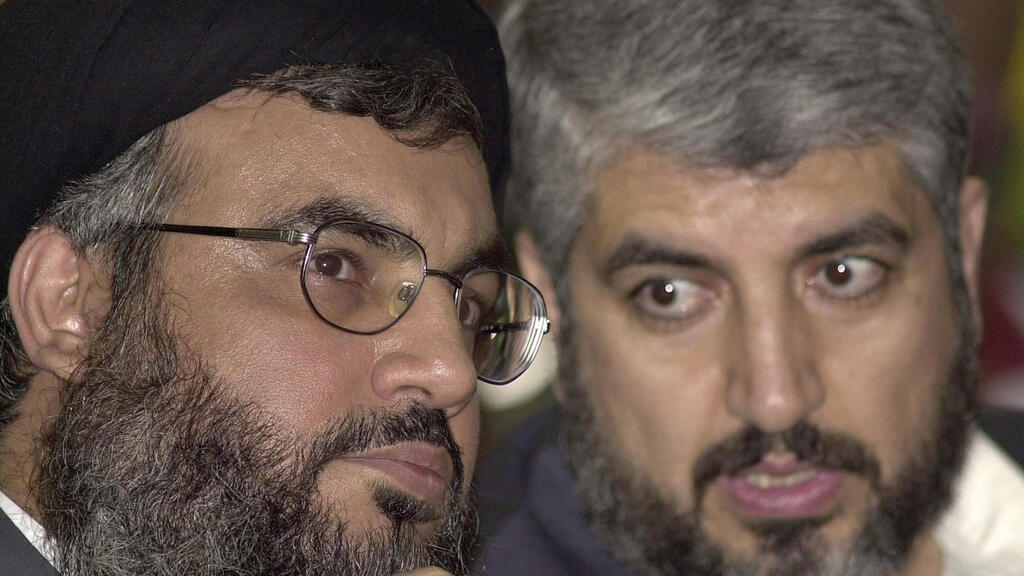Lebanese politicians and journalists among others, who are affiliated with the Hezbollah terror group expressed anger at the demands made by former Hamas chief Khaled Mashal calling for a second front to be opened against Israel while its forces are fighting against Hamas in Gaza.
Read more:
"Only this way can history be made."Mashal said adding there must be more that the limited and gradual approach Hezbollah was deploying on Israel's northern border. "What's happening here is not enough," he said. His remarks were rejected claiming they were made by "a man staying in a five-star hotel" and accused him of not being ashamed to urge Lebanon to provoke Israel.
1 View gallery


Hezbollah leader Hassan Nasrallah and Hamas leader Khaled Mashal
(Photo: AP/Hassan Ammar)
In an interview with the Lebanese Al-Jadeed channel, journalist Faysal Abd al-Sattar said "this story is unwelcome. Someone sitting in a Gulf state dares to tell Hezbollah, 'Thank you, but it's not enough.' Khalid Mashal has no positive influence on our Shiite environment, particularly after what happened in Syria." He referred to Hamas's support for anti-government forces during the Syrian civil war when Hezbollah sided with the regime.
Lebanese politician Wiam Wahab, closely aligned with Hezbollah and the Syrian regime, remarked, "Khaled Mashal meddled in the Arab Spring, the destructive spring that aimed to weaken the Arab world. If Mashal has 30 billion dollars to offer, then perhaps we can consider going to war." Journalist Salem Zahran, with close ties to Hezbollah, declared that if Mashal arrives at Beirut Airport, he is ready to take him to South Lebanon so he can fight with his forces.
The animosity toward Mashal is not new. Two years ago, when he landed in Beirut, political and security figures were reluctant to welcome him. Reports in the local media at the time suggested that the reason was his role in Syria and the Lebanese leadership's unwillingness to provoke Damascus and other Arab capitals.
ISRAEL WATCHING TO SEE WHETHER HEZBOLLAH ENTERS THE WAR




